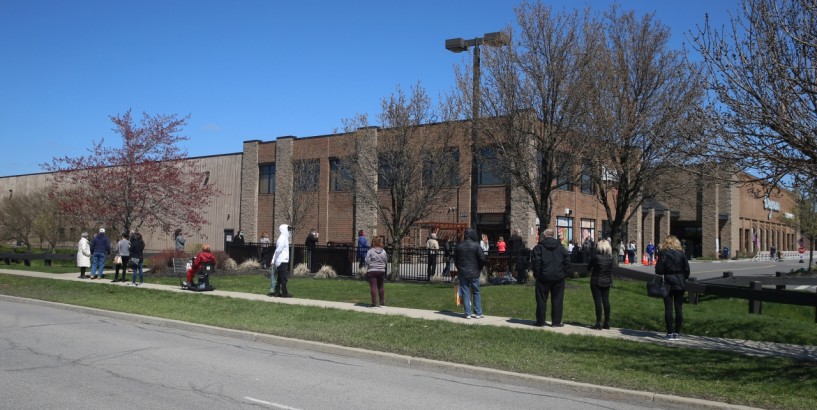Been there, done that, got the antibodies.
That will be what people who have had Covid-19 will hope to learn as public officials ramp up serological testing of the U.S. population. That’s a blood test that detects antibodies indicating that someone has had the coronavirus, even if they were not aware of it. The antibodies provide some degree of immunity against being reinfected, though health experts disagree about how much and for how long.
Antibody testing remains a work in progress, with noticeable room for improvement. As refinements with the tests continue, it will become an increasingly important part of the toolkit used by public officials trying to decide how and when to ease social distancing restrictions and start letting businesses and schools reopen.
The first wave of testing for Covid-19, still ongoing and important, is the one that determines if a person has the virus now. Then, an antibody test determines whether an individual has already had the virus. Now, a third wave of testing appears to be on the horizon.
Roswell Park Comprehensive Cancer Center announced Thursday it is part of a clinical study that seeks to use gene sequencing to analyze cells in blood samples, with the goal of producing a test to predict a person’s vulnerability to the virus, a Covid-19 “risk score.” Roswell Park, Catholic Health, the University at Buffalo and Thermo Fisher Scientific are partners in the study.
Gov. Andrew M. Cuomo last week announced preliminary results from New York State’s first large-scale antibody testing. Using a sampling of 3,000 people, the Department of Health found an estimated 2.7 million state residents – 13.9% of the population – likely have been infected with the virus. The breakdown by region was 3.6% upstate, 21.2% in New York City, 16.7% on Long Island and 11.7% for Rockland and Westchester counties.
Experts believe that in order for a region to achieve herd immunity, 60% to 70% of the population needs to have been exposed to the virus.
In addition to mapping the population, the tests are used to establish immunity, a determinant in deciding who can safely return to work. This is particularly important in evaluating the staff at health care facilities and other essential operations.
Unfortunately, figuring out immunity remains an inexact science. No one can say for sure what levels of antibodies are needed for immunity to the new coronavirus, or how long the immunity will last. The World Health Organization issued a statement Friday saying “there is no evidence yet that people who have had Covid-19 will not get a second infection."
If the antibodies do provide immunity, some experts think it might be no more than a year, but even that could help diminish the threat of a “W-shaped” economic recovery and give more time to develop an effective vaccine.
About 90 companies, many from China, brought antibody tests to the U.S. market. Citing the urgency of the coronavirus pandemic, the Food and Drug Administration allowed this, though it had not vetted most of the tests. Many of the tests were flawed, producing an unacceptably high level of false positive or false negative results.
Citing the same problem, New York City’s top official for disease control, Dr. Demetre C. Daskalakis, noted that unreliable results may create “significant voids” in attempts to document immunity.
Cuomo did not address the topic of individual immunity, but the Health Departments says its antibody test is of high quality. There may not be a gold standard test yet, but companies are refining their products daily. Antibody testing will become an integral part of the solution for easing up on social isolation.
• • •
What’s your opinion? Send it to us at lettertoeditor@buffnews.com . Letters should be a maximum of 300 words and must convey an opinion. The column does not print poetry, announcements of community events or thank-you letters. A writer or household may appear only once every 30 days. All letters are subject to fact-checking and editing.
Story topics: Coronavirus / Covid-19









